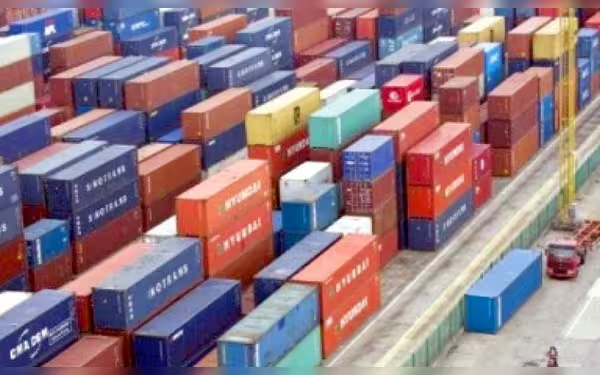Saturday, November 16, 2024 05:50 PM
Reassessing Pakistan's Textile Import Strategy
- Decline in textile machinery imports threatens industry growth.
- Restrictions hinder productivity and competitiveness in textiles.
- Policy changes needed to support local textile production.
 Image Credits: tribune.com.pk
Image Credits: tribune.com.pkPakistan's textile industry faces challenges due to declining machinery imports, necessitating a strategic policy re-evaluation for future growth.
The import strategy of a country plays a crucial role in shaping its economic landscape. In Pakistan, the textile industry has long been a cornerstone of the economy, providing jobs and contributing significantly to exports. However, recent trends indicate a troubling decline in the import of textile machinery and intermediate goods. This decline has been particularly pronounced over the past two years, raising concerns about the future of this vital sector.
Producers in the textile industry have faced numerous restrictions on their ability to import essential capital goods and inputs. These restrictions have not only hampered their operations but have also led to a noticeable decline in business activity. As a result, productivity and competitiveness have taken a hit, leaving many stakeholders worried about the long-term implications for the industry.
When businesses cannot access the machinery and materials they need, the ripple effects can be significant. Factories may struggle to meet production targets, leading to delays and potential losses. Moreover, the inability to innovate and upgrade machinery can leave local producers at a disadvantage compared to international competitors who have better access to technology and resources.
It is essential for policymakers to re-evaluate the current import strategy to ensure that the textile industry can thrive. This may involve easing restrictions on imports, providing incentives for local production, or investing in technology that can help boost productivity. By fostering a more supportive environment for the textile sector, the government can help secure jobs and enhance the overall economic stability of the country.
The decline in imports of textile machinery and intermediate goods is a pressing issue that requires immediate attention. A strategic re-evaluation of import policies could pave the way for a more robust textile industry, ultimately benefiting the economy as a whole. As stakeholders in this sector, it is crucial to advocate for changes that will not only revive productivity but also ensure that Pakistan remains competitive in the global market.













